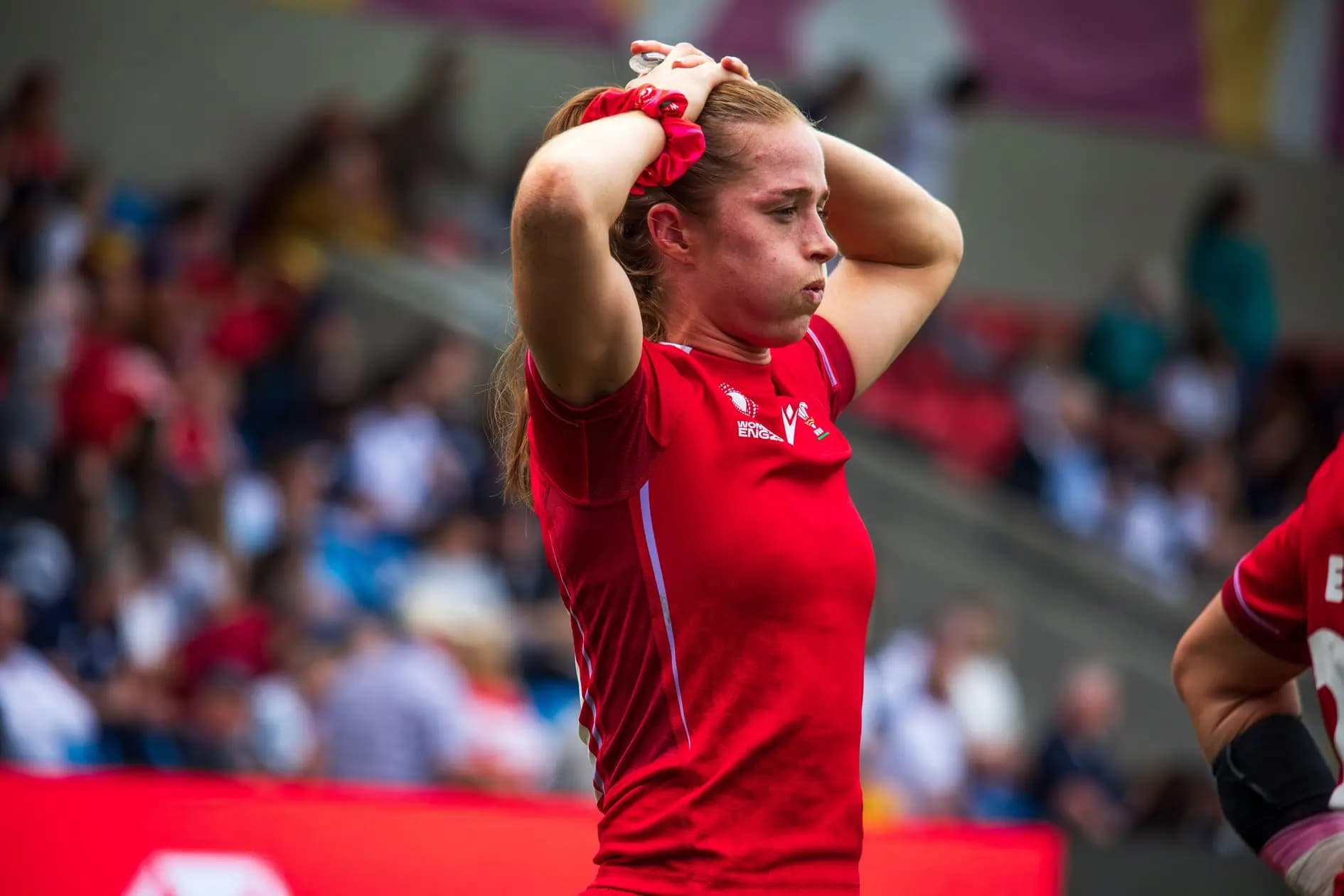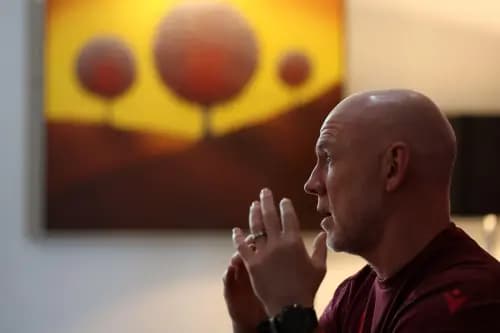By the time Fran McGhie skipped in for her hat-trick try early in the second half at Salford, the tone of Wales’ Women’s Rugby World Cup campaign had shifted dramatically.
What had been billed as a tight, evenly balanced clash with Scotland, quickly unravelled into a sobering reality check, one that left head coach Sean Lynn acknowledging his side had been “bullied off the park”.
The final scoreline – 38-8 to Scotland – not only reflected the ruthlessness of their opponents but also laid bare Wales’ fragility when it mattered most.
Six Scottish tries told a story of dominance at the breakdown, set-piece power when it counted, and an ability to punish lapses in concentration.
For Wales, this was about more than defeat. It was about being outmuscled in the very area they had targeted as their strength.
“I told the players that that is just not good enough,” Lynn admitted afterwards, his words carrying the blunt honesty of a coach who knows the stakes.
“We said we wanted to be physical, but credit to Scotland they just bullied us off the park, especially at the breakdown.”
That phrase – “bullied” – cut to the heart of the problem.
Physicality has long been central to the revival Lynn has been seeking, but here it was the Scots who owned the collisions, dictated the tempo, and forced errors.
READ MORE: Five Months of Work and Sean Lynn is Ready For World Cup Lift Off
The breakdown, in particular, became a recurring nightmare, with Wales repeatedly stripped of momentum.
“You can’t start both halves with them scoring tries,” Lynn added, reflecting on McGhie’s opener after just 55 seconds and Leia Brebner-Holden’s snipe before the break.
“We could have been in the game in the second half, but we had a sin-bin. Credit to the girls who came off the bench they made an impact, but that simply wasn’t good enough.
“We thought we could get some gains through our physicality, but we didn’t.”
For all the talk of preparation – “I thought our preparation we had done for the last fortnight had been spot on” – the gulf on the pitch was obvious.
Scotland enjoyed two-thirds of possession in the first half and looked the more composed, clinical outfit throughout.
They had five clean line breaks to Wales’ one before the interval, numbers that reflected not just opportunities created, but confidence in taking them.
READ MORE: Old School Neumann . . . Lisa Hits 50 Caps as Wales Face Scotland in World Cup Opener
And yet, the more striking difference was psychological.
Where Scotland grew into the contest, Wales appeared to shrink from it.
The yellow card for Gwen Crabb after a dangerous tackle left them scrambling, but in truth, the damage had already been done.
Scotland’s fifth try, via No 8 Evie Gallagher after a dominant scrum shove, symbolised the difference in power.
“As I told the girls, we can’t keep saying it, we have to deliver it,” Lynn admitted.
“They are all upset and this result is hurting them, but we’ve got Canada next, which is going to be another tough task, and then Fiji.”
The context makes that statement all the more urgent. With only two sides progressing from Pool B, Wales’ hopes of reaching the quarter-finals are already under serious threat.
Canada, physical and well-drilled, present a daunting next challenge. Fiji, unpredictable and explosive, will fancy themselves against a Welsh team still licking wounds.
Lynn’s challenge now is not simply technical or tactical, but emotional.
Can he turn the despair of Salford into fuel for a response?
“We’ve got to make sure we are on song for Canada next week,” he urged.
“We’ve got to see what we can get out of the Canada game. Maybe Fiji might take a scalp next week. They are upsets at a World Cup.”
It was a revealing comment, and perhaps a tacit recognition of the knife-edge Wales now inhabit.
Against Scotland, they were architects of their own downfall as much as victims of Scottish excellence.
Moments of promise – Alex Callender’s driving maul try, Lleucu George’s smart kicking, Jaz Joyce-Butchers’ running – were undermined by turnovers, missed tackles, and lapses in concentration.
Scotland, meanwhile, deserved every accolade. McGhie’s hat-trick, Helen Nelson’s control at fly-half, and the grit of their pack signalled a team unburdened by history.
For a nation absent from the World Cup knockouts since 2002, this was a statement of intent.
For Wales, it was an uncomfortable reminder that progress cannot be taken for granted.
The hurt, Lynn insists, is real. Whether it fuels a response will define their tournament.
The margins for error have evaporated. From here, Wales must not just play better – they must stand taller, braver, and find belief.
Otherwise, this bruising night in Salford may come to be remembered not as a wake-up call, but as the moment their World Cup campaign unravelled.







